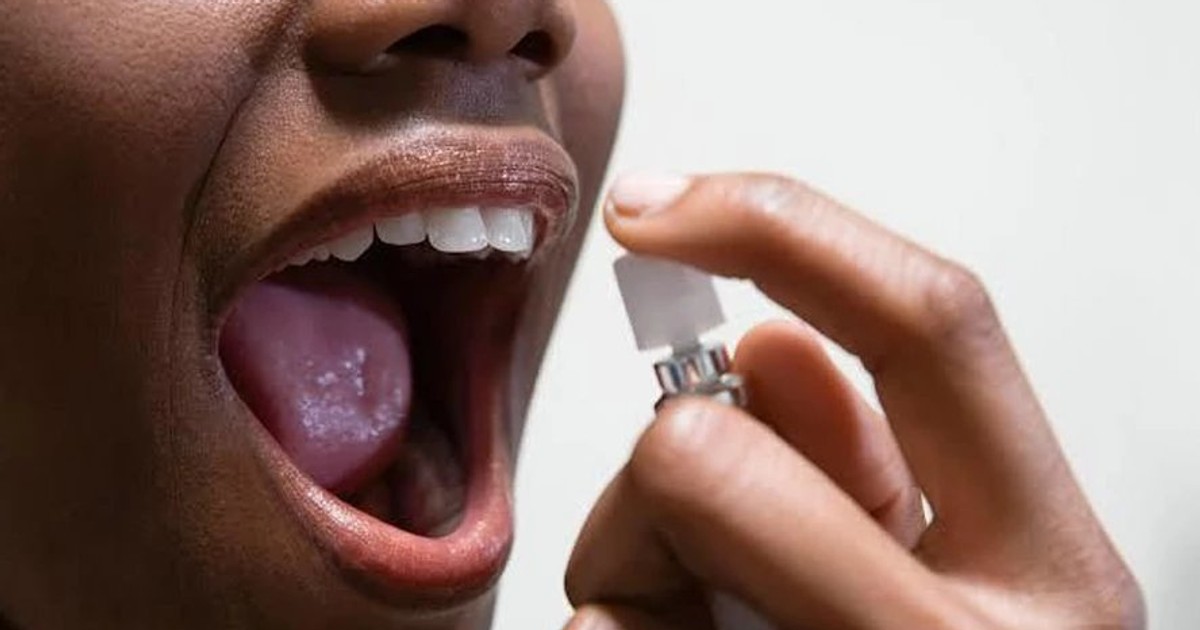Why We Can’t Smell Our Own Breath?
It’s a common issue that many people face, yet it’s often overlooked. People who are affected by it may not even realize they have a problem because they can’t smell it themselves.
Imagine having a conversation with friends or family members, unknowingly making them uncomfortable, and having no idea. It’s a situation that no one wants to be in, and it can be challenging to avoid because it’s hard to detect on your own.
Many people assume that since they can smell other scents, they should be able to catch a whiff of their own breath. However, it’s not that simple.
There are reasons why people can’t easily detect their own bad breath, and understanding these reasons can bring more awareness and kindness to this sensitive issue.
So, why can’t we smell our own breath? Let’s take a closer look.
[Insert Image: Why We Can’t Smell Our Own Breath]
As we can see, there are several reasons why we can’t smell our own breath. First, our sense of smell is designed to detect odors outside of our bodies, not inside. Second, our nostrils are located at the top of our nasal cavity, which means that the air we breathe in doesn’t mix with the air in our nasal passages. This makes it difficult for us to detect the scent of our own breath.
Alternatively, our sense of smell is also influenced by our emotions and expectations. For example, if we’re feeling anxious or stressed, our sense of smell can be altered, making it even harder to detect our own breath.
In conclusion, it’s essential to be more understanding and empathetic towards those who may be struggling with this issue. By recognizing the reasons why we can’t smell our own breath, we can work towards creating a more supportive and accepting environment.Bad breath, also known as halitosis, is a common issue that affects many people. But did you know that our brains have a mechanism that prevents us from noticing our own breath? This phenomenon is called olfactory fatigue, also referred to as “nose blindness.”
Olfactory fatigue occurs when our brain becomes desensitized to certain smells it’s constantly exposed to. Since we’re surrounded by our own breath all day, our brain learns to tune it out to focus on other new and important scents in our environment. This adaptation helps us focus on what’s happening around us, but it also means we often miss out on noticing our own mouth odor.
But what causes bad breath? The answer lies in the bacteria that thrive in our mouths. These microorganisms break down leftover food particles and release foul-smelling compounds. Even though these smells can be overpowering, our nose adapts, making it challenging for us to notice. Additionally, people who experience dry mouth are more likely to have bad breath, as saliva helps wash away food and bacteria. Without enough saliva, the bacteria linger longer, making the smell worse.
So, how can you test for bad breath? A quick and simple method is to lick the back of your wrist, let it dry, and then sniff the area. You can also gently scrape the back of your tongue with a clean spoon and smell it. While these methods aren’t precise, they can give you a rough idea of your breath’s scent.
Fortunately, there are ways to manage bad breath. By practicing good oral hygiene, regular brushing and flossing, and visiting your dentist for regular check-ups, you can reduce the risk of bad breath. Additionally, maintaining a healthy diet and avoiding smoking can also help.
By understanding the reasons behind bad breath and taking steps to address it, you can regain confidence in your breath and feel more comfortable in social situations.The often-overlooked importance of oral hygiene
When it comes to maintaining good oral health, it’s easy to focus solely on brushing and flossing your teeth. However, there are other essential areas to pay attention to – like your tongue and gums.
It’s crucial to brush your tongue regularly, as it’s a breeding ground for bacteria. In fact, the surface of your tongue can harbor a significant amount of bacteria, which can be transferred to your teeth and cause problems. A simple solution is to brush your tongue with your toothbrush and some water after brushing your teeth.
Another often-overlooked aspect of oral hygiene is gum health. Chewing sugar-free gum can help with this, especially if you tend to have a dry mouth. This is because gum can stimulate saliva production, which helps to wash away bacteria and food particles.
If someone you know points out that you have poor oral hygiene, try not to get defensive. Instead, take it as an opportunity to make a positive change. It’s all about taking small steps to improve your oral hygiene and have a healthier, happier smile.
Remember, good oral hygiene is just as important as good overall health. So, make sure to brush, floss, and take care of your tongue and gums for a healthy, radiant smile.



